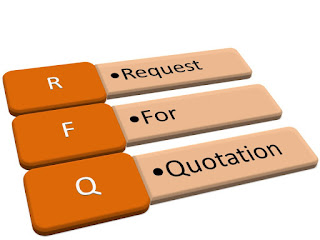RFQ: pros & cons , use

Pros and cons An RFQ is not publicly broadcast, it is circulated among only a few selected vendors capable of delivering the product the issuing company desires. Thus, using an RFQ reduces procurement processing time because there is no need to prepare procurement solicitation documents. As the number of bidders' quotes requested limits the amount of RFQs received, it can have a direct impact on reducing the selection process time. Also, as an RFQ goes to a limited number of pre-qualified vendor, the quality of the final product can also be kept in check. Although, the RFQ may result in deviations from the normal process because the soliciting company determines which vendors to send RFQs to, in effect limiting the competition. Vendors that favorably respond to the RFQ and meet the minimum criteria are included in the RFP solicitation process. When to Use an RFQ Using an RFQ makes...
